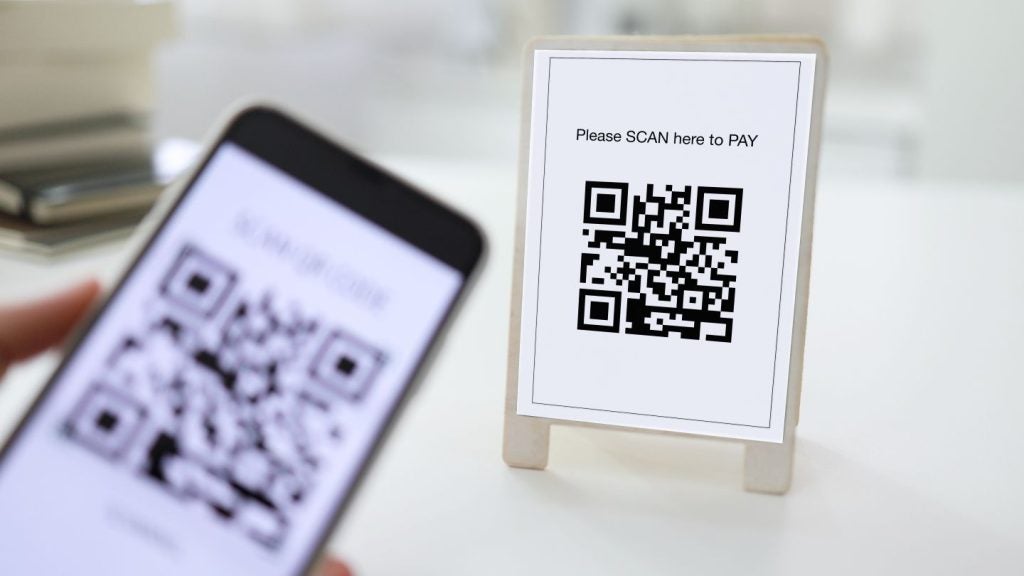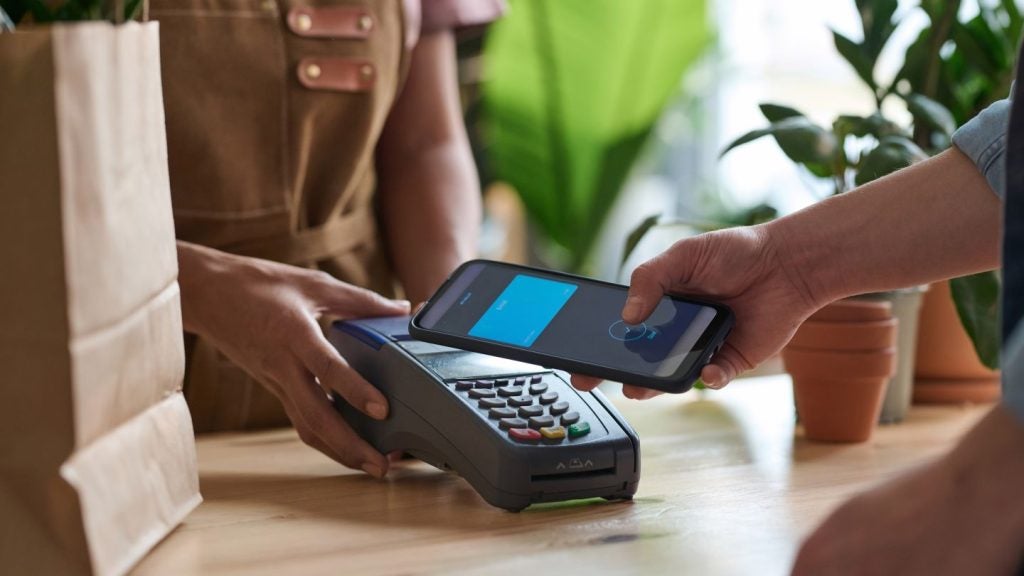
Whether or not NFC is the next big thing in electronic payments, is still a hot topic across the industry. Sandra Kilhof talks to Frédéric Vasnier, chairman of SIMalliance, about NFC growth and the growing demand for mobile payments-compatible SIMs in emerging markets
Mobile payments are on the verge of skyrocketing as suppliers of credit card and NFC-compatible SIMs are exporting more than ever before, as projections suggest that we may only be seeing the beginning of the mobile payments surge.
This was the key message, when the SIMalliance chairman Frédéric Vasnier recently hosted a webinar revealing SIM market data and analysis for 2012, based on the global shipments of SIMalliance members.

Access deeper industry intelligence
Experience unmatched clarity with a single platform that combines unique data, AI, and human expertise.
The webinar revealed that shipments in high-tech SIMs were growing exponentially, especially due to the spread of NFC enabled handsets. With more than 30m NFC shipments in 2012, the alliance members, representing 90% of the available market, saw an 87% year on year increase in NFC shipments.
"In previous years the ecosystem links across the industry were still set to be validated, so there weren’t a lot of NFC-enabled handsets and the models that were on offer didn’t have a lot of sex-appeal. Now, the technical infrastructure and testing of the ecosystems has been completed across Western Europe and USA," Vasnier says.
Furthermore, Vasnier pointed out that M2M testing has been finalised as part of joint ventures between major network operators and banks in several mature markets. These developments in 2012 have made NFC systems across the western world ready for commercial launches.
"Beyond the necessary technical specifications, we are now seeing business models being built between card processors, banks and network operators allowing for more commercial NFC launches," he adds.

US Tariffs are shifting - will you react or anticipate?
Don’t let policy changes catch you off guard. Stay proactive with real-time data and expert analysis.
By GlobalDataNFC for the tech-savvy populations
The networks enabling the spread of NFC are especially developed in mature markets. According to SIMalliance data, growth of NFC has been strong in technologically advanced communities like Japan and South Korea, allowing for 23m NFC shipments to these markets alone. In comparison, Europe, which has established elaborate ecosystems for mass-transit and payments via NFC, only had 6.5m NFC shipments in 2012. Vasnier considers the difference in shipments to be a representation of the technologically savvy population in Japan and South Korea.
"Japan and Korea are strong markets because the end-users are educated to use NFC. They have been daily users of contactless technology for years," he stresses.
But the Asian appreciation for NFC does not just come down to education. According to Vasnier, strong links between banks and telecoms have paved the way for progressive NFC joint ventures and the establishment of viable ecosystems.
"When looking at the business models in these countries there are strong links between banks and mobile networks, sometimes they are even shareholders of each other. This is especially the case in South Korea where there is a favorable ecosystem for mobile network operators and banks."
Even though NFC growth is largely positive, there is still some variance in the spread of NFC to other countries. Often, this comes down to the various denominators necessary for the implementation of NFC, such as differing service providers, varying mobile phone capabilities etc. But according to SIMalliance these differences will not hinder the further spread of contactless payments. With recent developments in technology and the establishment of solid business cases, Vasnier suggests that the further implementation of NFC comes down to copy-pasting.
"We often bring in the same technology, so it is a matter of replicating the technology and adapting business cases from other countries, depending on the power of each player in the financial ecosystem. I think we are now at the stage of copy-pasting, with some customisation for each country, because each country is different. For example, there may be variations in the number of mobile network operators who are willing to work together," says Vasnier, referring to the American joint venture where three mobile network operators have joined together to form ISIS.
"In other countries, there is no such joint venture, each provider may have their own trusted service manager. So business-wise the set-up may be different, but the technology is always the same," Vasnier adds.
Mass transport pushing NFC growth
Recent media reports have shown the spread of NFC to the Middle East as mobile operators in the region prepare for commercial launches by building their NFC infrastructure. Likewise, SIMalliance predicts that NFC will grow because of these investments in the contactless infrastructure for payments and transport.
"We can see that mobile network operators are looking at other uses for NFC now, such as mass transport, access to buildings and corporate security. There is a long list of potential uses, which will be a part of smart phone applications. In this respect NFC provides ease and convenience to end-users, as well as providing a good business case for service providers and mobile network operators," says Vasnier.
Mass use of NFC will likely drive the growth of contactless payments to other mature markets and maybe even emerging markets. Here it is especially clear that mass transit will be big for NFC, because millions of residents in i.e. large BRIC cities, use public transport.
As a result, many suppliers of advanced SIM cards have seen interest from major transport companies looking to link up already deployed MyFare contactless technology with NFC. Vasnier says: "It is most likely that NFC in emerging markets will start with mass transport, but this will only be in the major cities, not in rural areas and the emergence will come later rather than sooner."
Mobile payments move forward in Africa
With the emerging markets moving slowly towards mass NFC use, it is clear that something else is driving the boom in SIM shipments to Africa, South America and various Asian markets. Mobile money systems like M-Pesa and EcoCash have reached unforeseen heights of popularity in Kenya and Zimbabwe respectively, pushing the need for payments-compatible SIMs to emerging markets. In fact, most of the mobile payment systems based on SIM-browsing technology are being shipped to Africa.
In 2012, Africa has seen a 20% growth in SIM shipments. According to SIMalliance data, the growth reflects an increased reliance on phone handsets for access to bank accounts and to act as a payment vehicle. The potential for mobile payment growth in this region is particularly accredited to the number of unconnected people in the region and the safety that mobile payments provide as opposed to carrying cash around.
"Mobile payments systems like M-Pesa have helped consumers feel safer because they don’t have to carry cash on them. If their phone is stolen the thief still can’t gain access to their money. It is also a convenient option for money exchange, thanks to cloud technology," says Vasnier when probed about the grounds for the impressive yearly SIM-growth in Africa.
New payments demand high-end tech & security
So with all these positive developments, what hurdles lie ahead for the SIM industry?
The technological developments and demand for new products in recent years has undoubtedly put pressure on SIMalliance members to deliver technologically sound products. Vasnier points out that the vast amount of commercial launches within NFC and mobile payments have impacted SIMalliance members, by demanding the convergence of different technologies.
"When it comes to NFC payments we are merging credit cards with SIM cards, on top of contactless technology. This is extremely interesting for our industry as we have converging technologies and vast potential for these high-end products across mature markets".
But technological challenges and the pressures of consumer demands are not the only issue lying ahead. With the growth of mobile payments and NFC, security is becoming a key concern for consumers and industry players. Concerns over data protection and fraud have built as payments are becoming easier and demanding less verification. But Vasnier assures that security will not be compromised, regardless of the technological advances.
"When it comes to the issuing of payment-compatible SIM cards, our members need to go through some very tight certification processes, as is the case for bank cards. That means that the chips on which our members install their operating systems need to be certified, usually by meeting criteria set out by Visa, MasterCard or AmEx."
According to Vasnier, the SIM chip must be functionally certified, as well as certified with regards to security. This is a means to ensure that the SIM works with all the dispatched points of sale and that the payment process is totally secure, no matter where, when or how the payment is conducted. Lastly, the card application on top of the operating system must also be verified.
"It is tedious and high-end technology and security work, but this is the price we have to pay if we want cards to be banking grade and individual security to be ensured," says Vasnier, when questioned on how members will meet rising security demands over the coming years.
"Security is our main concern when it comes to payment SIMs and the identity of individuals must be protected in the mobile environment," the chairman stresses.
NFC critics have suggested that technological complications as well as security issues may hinder the global spread of contactless payments.
Vasnier concludes: "Looking at the convenience and security NFC brings to end-users, as well as the business model it provides to service providers and mobile networking operators, we clearly see NFC as an enabling technology for the convergence of many services on to the mobile. Even though we will not forecast the market for 2013, we know that there is great demand for projects in NFC".







